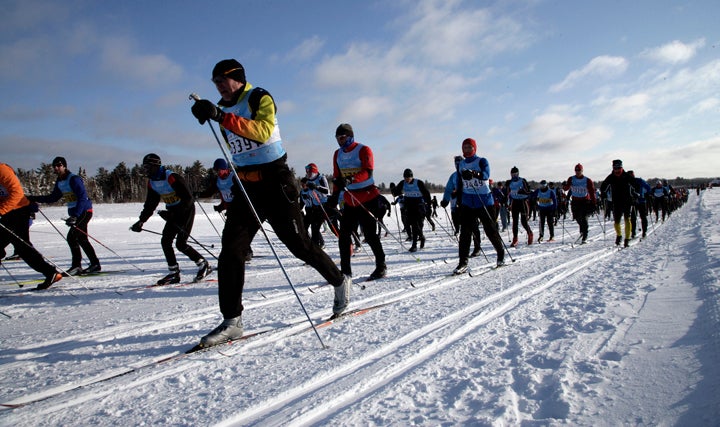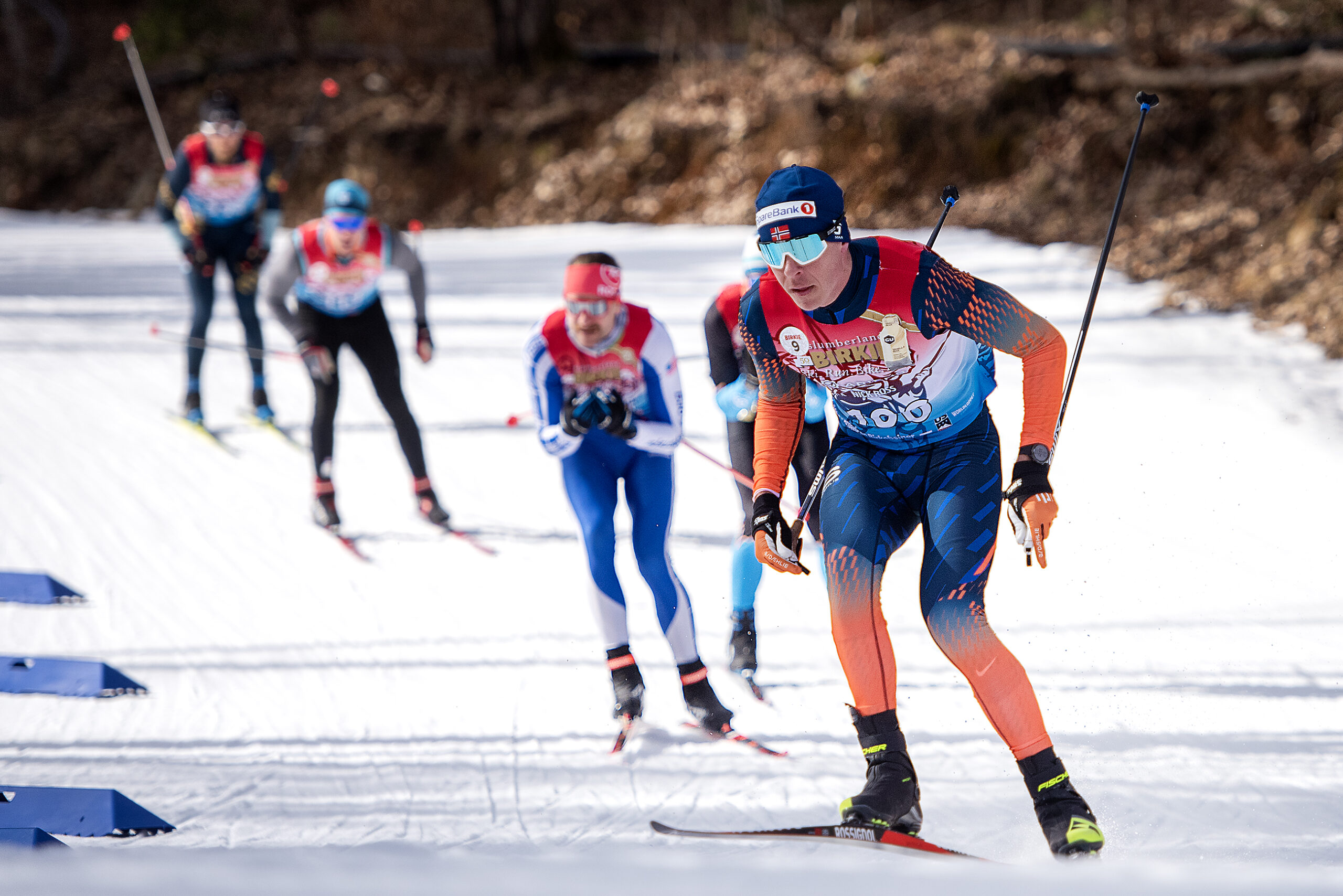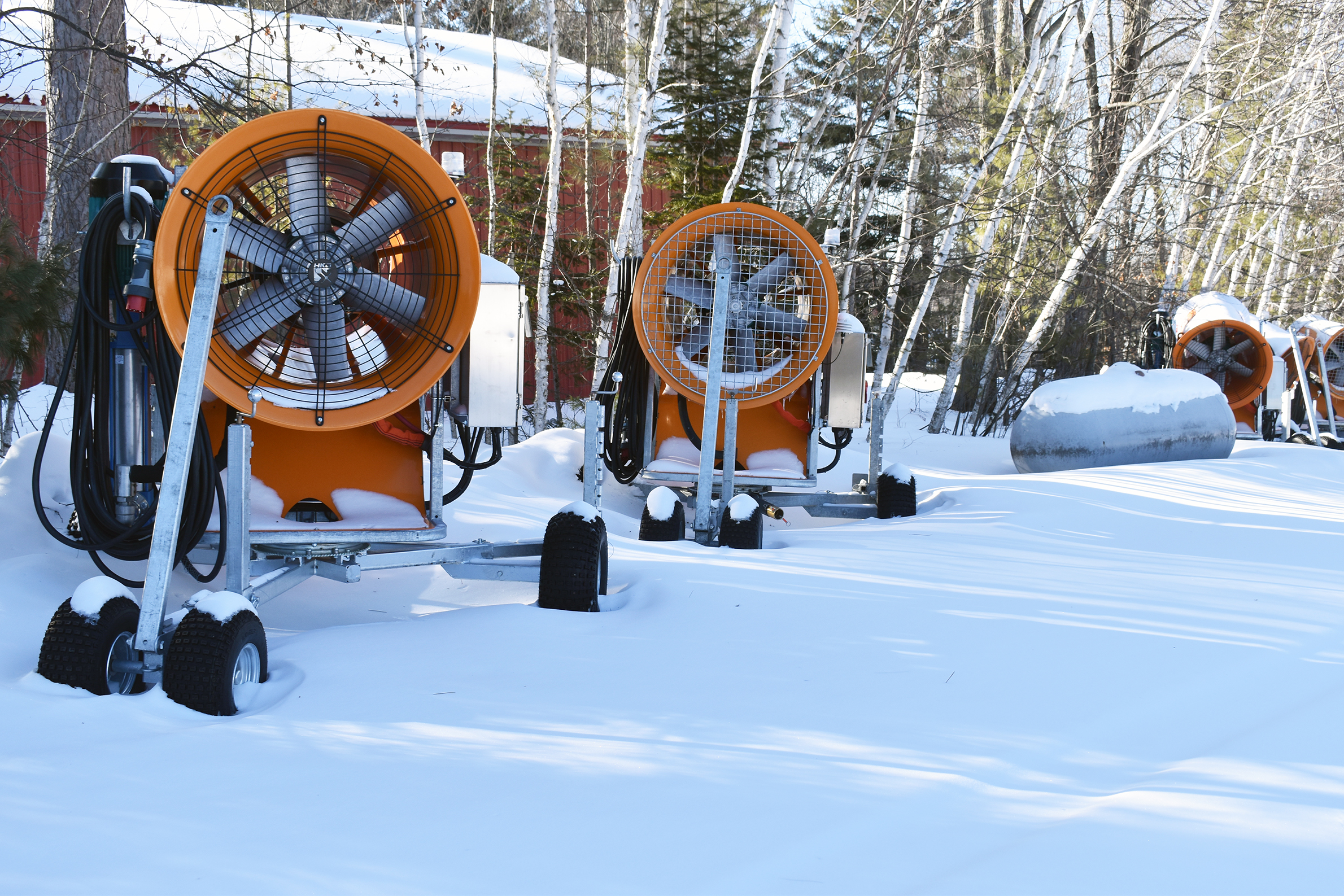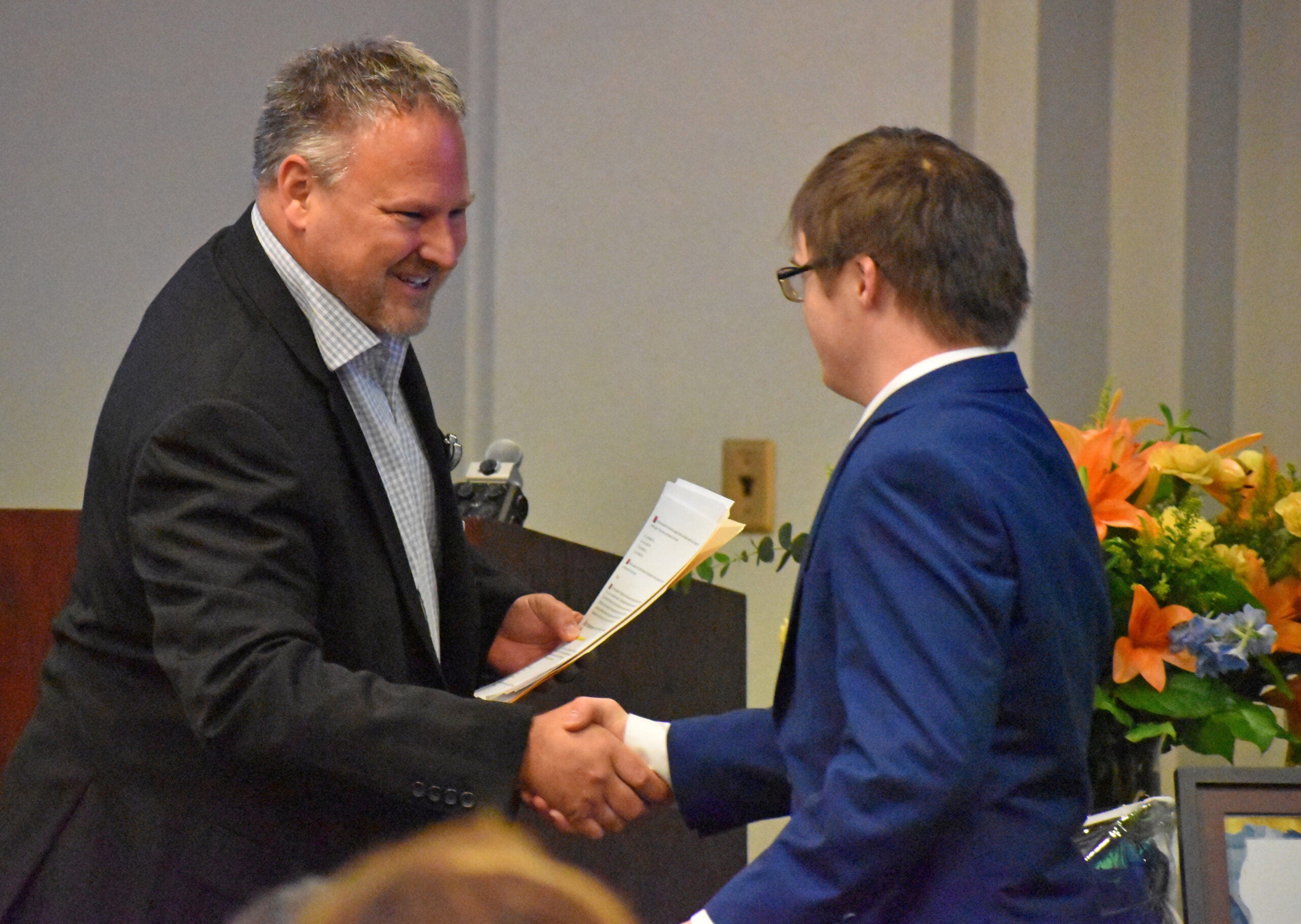Jessica Yeaton, of Albuquerque, New Mexico, came out on top as the women’s skate champion in the American Birkebeiner Ski Race last year, and she plans to ski the race again this year.
She just won’t be skiing the race in northern Wisconsin.
“I am so excited to get the chance to do this race even though I can’t go to Wisconsin,” said Yeaton in a message on YouTube.
Stay informed on the latest news
Sign up for WPR’s email newsletter.
Yeaton is skiing the race virtually in New Mexico this year due to the COVID-19 pandemic and so will many others at 32 venues partnering with the Birkie. But, thousands of skiers are planning to race in northern Wisconsin this year, even as health officials have advised people to take part virtually. In response, race organizers and businesses say they’re taking precautions to make the event as safe as possible.
North America’s largest and longest cross-country ski race, which has an operating budget of around $1.5 million, attracts participants from across the globe each year, said Ben Popp, executive director of the American Birkebeiner Ski Race. But, this year, the event will include many changes and far fewer people will be racing the course in person with the vast majority coming from Wisconsin, Minnesota and Michigan.
In February 2020, around 11,000 people took part in the race, which can draw as many 30,000 spectators. This year, organizers are expecting under 5,000 skiers to race in person and no spectators are allowed.
“I feel like we’ve created a medium for people to be able to come participate in the event safely,” said Popp.
Normally, skiers would race on a single day, but organizers have spread out the race over five days from Feb. 24-28. They have also changed the course, which will begin and end in Cable rather than downtown Hayward. The change was made because participants will not be bussed to the start line to limit gatherings and promote social distancing.
Skiers are also being asked to take a COVID-19 test within five days of coming to the area and take part virtually if they test positive for the virus. Race organizers acknowledge the concerns of health officials and community members. But, Popp said they feel holding the race with safety protocols is better than having none at all.
“Our biggest fear is of the nearly 4,800 or 5,000 people currently that want to come ski it in person, they’re going to all just show up Saturday and say, ‘Great, I want to go ski from Cable to Hayward,’” said Popp. “And, so we lose a lot of that control as soon as we just say it’s all virtual — go ski on the Birkie trail.”
The Sawyer County Health Department has fielded “an increasing number of calls” from residents concerned about the race’s impacts on public health, according to a Jan. 29 statement. But, health officials say they have limited power to maintain and enforce public health orders, which have faced legal challenges in Wisconsin.
“We have met with Birkie staff to discuss concerns. Their plans eliminate gatherings in enclosed spaces and minimize person-to-person contact,” Julia Lyons, the county’s public health officer, said in the statement. “In-person participation is currently 5,000 participants over five days, compared to more than 10,000 over two days in a normal year.”
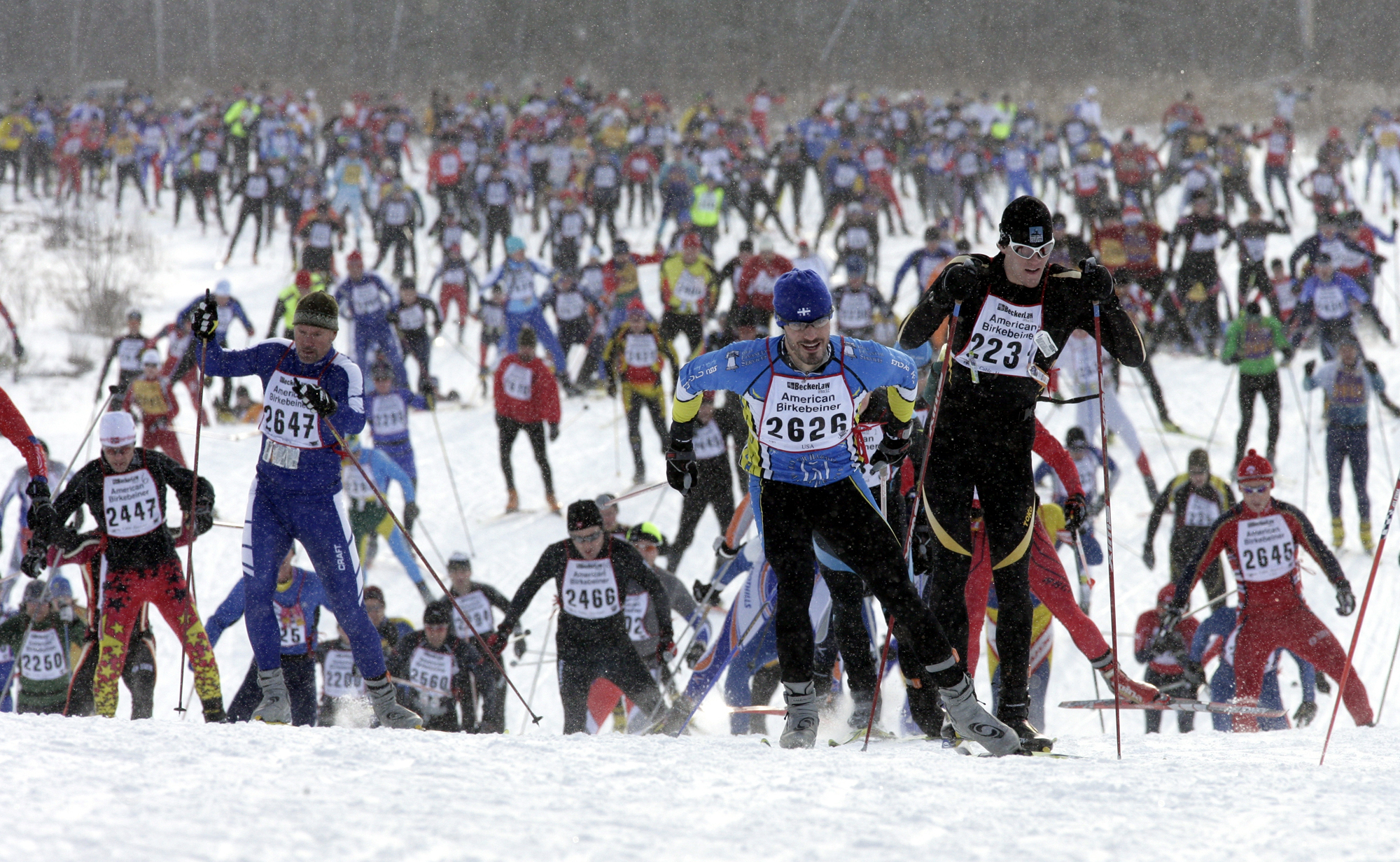
County health officials have recommended skiers take part virtually and warned visitors that not all community members follow masking guidelines. The health department said its recommendations for residents to stay home, minimize exposure, wear masks and distance themselves from others has not changed. While the infection rate has declined, Sawyer County still had a “very high” activity for the virus as of Feb. 3, according to the state Department of Health Services.
Luke Beirl, CEO of the Hayward Area Memorial Hospital, said in a statement that they’re concerned about any and all events that could impact public health. But, he noted it’s not their role to determine whether events are held.
“Throughout the American Birkebeiner’s planning I have shared our position as it relates to our key concerns of the pandemic, which include staffing, personal protective equipment, internal and regional bed capacity and community prevalence,” said Beirl. “Our efforts will remain focused on providing acute health care services to our community and those visiting our area.”
Other frontline workers are worried about holding the race at a time when more contagious variants of COVID-19 have been detected in the state, including Rob Puls, advanced life support coordinator for Great Divide Ambulance Service in Cable.
“The people who live here are going, ‘Whoa, do we want all these people influxing in a pandemic and being in the bars, the gas stations or restaurants or wherever they’re interacting?’” said Puls. “That’s just people who live here. Forget about people who actually have a responsibility to respond.”
Race organizers say those who participate are expected to avoid crowds, physically distance from others, remain in their household bubble, opt for takeout or food delivery while in the area, and follow masking guidelines. They have also encouraged people to bring their own water bottles and no food will be provided within aid stations.
By spreading the race out over days and starting people in waves, Popp contended that no more than 200 people would be gathered at the venue during any given time. Such steps are among strategies identified by the Centers for Disease Control and Prevention to maintain healthy gatherings, but federal health officials also note that the risk of transmission is higher when people from outside the local area take part.
It’s not the only large event to be held in the midst of a pandemic. Thousands recently gathered for the Super Bowl in Florida. Yet, another ski event in northern Wisconsin, Book Across the Bay, canceled its event, following guidance from health officials. Still, Popp said Hayward is a tourist destination that has already drawn record numbers of people seeking the outdoors during the pandemic, highlighting that the race is a huge economic driver for the region.
A 2014 study on the economic impact of silent sport enthusiasts in northern Wisconsin found that those visitors spent around $468 per trip with around $260 being spent in Ashland, Bayfield and Sawyer counties. Altogether, visitors spent around $26.4 million in 2012 during such events, supporting more than 200 jobs in the counties.
Melissa Jordan, president of the Hayward Area Chamber of Commerce, said it’s been a tough year for businesses during the pandemic.
“I think that our members really need this,” said Jordan. “I mean, they’ve been fortunate enough to pull through in 2020. But, it’s tough that there have been changes to the race this year. I think the changes are for the better … But with that being said, I still think that our businesses really rely on this event to get them through the winter.”
Doug Rohde owns the 66-room Flat Creek Lodge in Hayward. He said the ski race is the region’s Super Bowl.
“It’s kind of a month-maker, winter-maker, that happens every February, and that’s a really good thing,” said Rohde. “I will say that in lieu of the pandemic, I think the Birkie has done a great job of being very thoughtful about how this whole thing’s going to work.”
The lodge is not sold out like years past, but Rohde said it won’t be a bad year since some are still planning to come. He thinks resort towns have gotten a bad rap during the pandemic, but he emphasized that businesses are taking every precaution to keep people safe and prevent the spread of the virus.
Wisconsin Public Radio, © Copyright 2024, Board of Regents of the University of Wisconsin System and Wisconsin Educational Communications Board.

